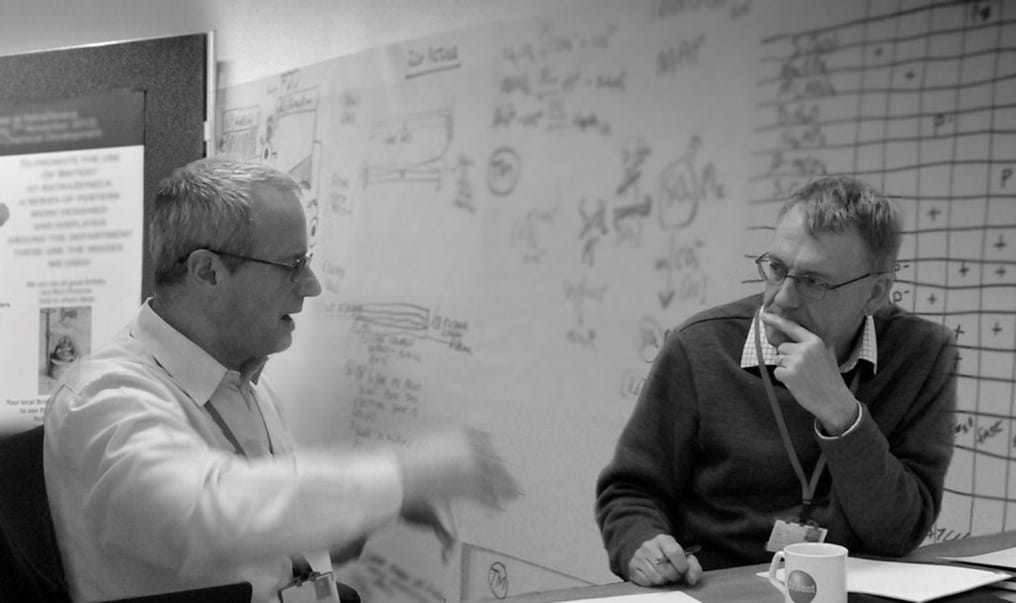Why I volunteer on IChemE’s Congress – Marking Volunteers Week 2019

3rd June 2019
IChemE is led by members, supports members and serves society; but we can’t fulfil our role as a qualifying body or share learnings in chemical engineering without our member volunteers.
Volunteers from across the world contribute to IChemE’s activities on a daily basis across all aspects of our work.
Volunteers in Australia celebrated Volunteers Week on 20-27 May, and this week (1-7 June 2019) marks Volunteers Week in the UK. So, we want to celebrate and say thank you to all of our volunteers for their fantastic contributions. We're profiling just some of our volunteers to highlight their great work in a blog series this week.
First up, Robert Peeling, Fellow Representative and Chair of the Communications Working Group in IChemE’s Congress, explains why he enjoys his role in the newly established Congress, which advises the Board of Trustees on matters of interest to IChemE and its members.

Name: Robert Peeling
Job title: Senior Innovation Specialist, Britest Ltd
IChemE role: Fellow Representative and Chair of the Communications Working Group for IChemE’s Congress
Biography: I have been an active chemical engineer for 35 years with experience in process safety, operations management, research and development and process design. This has been across several process engineering sectors, including textile dyeing and finishing, titanium pigments, catalysts, fine chemicals, and platinum group metal refining.
Having taken early retirement from Johnson Matthey in 2016, I now work for a not-for-profit company Britest Ltd, helping clients in the pharmaceutical and fine chemical sectors with process understanding through technical facilitation and training.
I am the current Chair of the Thames Valley Members Group (TVMG), and Fellow Representative and Chair of the Communications Working Group on IChemE's Congress.
Why did you volunteer to be on Congress and what is your role?
I have joined IChemE’s member groups in several parts of the UK at different times during my career when I have had time to commit to supporting them; most recently becoming Chair of Thames Valley Member Group. I’ve mainly been interested in encouraging young people in schools to study Chemical Engineering at university and helping early career engineers towards becoming Chartered Chemical Engineers.
An additional focus came in for me during the lead up to the Extraordinary General Meeting (EGM) in 2018. The discussions between members, Trustees and the IChemE senior management team highlighted areas for change in governance so that it’s more member-led. One of the key early changes was the establishment of Congress.
I reached the conclusion that the route to influence for change was from within, collaborating with all the other key groups such as the Board of Trustees, the combined Member Group/Special Interest Group Forum and IChemE staff. This gave me a new purpose as a volunteer, to be a voice for the members.
Initially, my reaction to that thought was to stand for Chair of TVMG. However, around the time of nominations of candidates for Congress, a former colleague and I discussed Congress over a cup of coffee. We ended up convincing each other to stand. I was surprised and honoured to subsequently find myself elected to Congress as a Fellow Representative.
I do think it is important to remember that all representatives have both a functional and a regional dimension to their role in Congress regardless of whether they were elected to the Functional or Regional Colleges. Through my role as a member group Chair I also wanted to help improve communications within the IChemE as the means to drive change. When the Chair of the Communications Working Group in Congress became vacant, it was natural for me to volunteer for the role.
What do you find challenging and rewarding by being a volunteer on Congress?
Congress mostly operates as a virtual forum and during the early days I found keeping up with all the discussions and re-tracing older posts when I needed to refer to them again could be tricky. However, it is worth the effort because the virtual forum enables Congress members to manage their participation in discussions whatever their work commitments or the time zone they live in. I think this is developing to make Congress work as a body representing all grades of member wherever they are based around the world.
Working groups hold teleconferences to continue these conversations, and as a whole Congress, we recently had our first physical meeting together. It was very valuable to put faces to everyone's names. Not just Congress either, I think face to face contact with the Board of Trustees and the senior IChemE staff have been a real help in moving Congress and the IChemE a big step forwards.
As Chair of the Communications Working Group, there is a time commitment to factor in to lead the team’s discussion, report back to Nigel Hirst, the Congress Chair, and set up separate discussions outside of Congress to move things forward.
That said, I volunteered with my eyes open and knew I wanted to put in the effort to make things happen, which is really where I find the reward. In my opinion we are already a different Institution to the one we were at the time of the EGM, with people much more concerned to keep each other up to date on what is going on.
It is a good feeling to think that I have been able in some small way to influence this. However, we are far from done and I get a lot of satisfaction to being involved in setting plans for the next steps.

What positive impacts have you made since volunteering for Congress?
My main contribution (and how I hope it is seen by others) is to take a lead on building a plan for improving communications between IChemE and the Membership (including from Congress to the Membership). I think I have been able to build useful links between various groups and members of staff at IChemE’s head office in Rugby and amongst the membership which help things to progress.
I think my suggestion that IChemE staff need to be treated equally with the members will prove to be important in ensuring that IChemE staff can feel properly part of the organisation they serve.
How do you see your volunteer role developing in the future?
There is a lot still to do with communications and so I foresee my focus on this continuing for some time. I am also joining a joint Board of Trustees/Congress Communications Panel, which is going to be important in breaking down barriers. I also expect my role as a Member Group Chair will continue for another couple of years or so.
Somewhere along the line, my focus will most likely swing from communications to the Learned Society initiative, which I support as a key part of making the IChemE relevant for the 21st Century.
What would you say are the three qualities required to fulfil your volunteer role?
Communication skills! However, also it is important to be a self-starter because of the virtual nature Congress’s operation. I have found an ability to step back and try to see the whole picture has been very valuable too.
IChemE’s inaugural Congress was established in October 2018. It comprises of up to 40 volunteer members elected by their peers to roles in the Functional College (by member grade), and the Regional College (by location around the world).
Members can find out more about their Congress representatives and get in touch with them at http://www.icheme.org/congress.